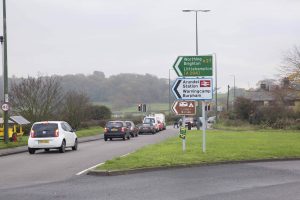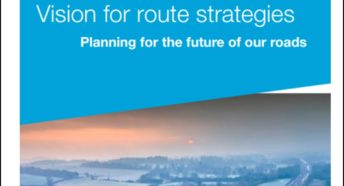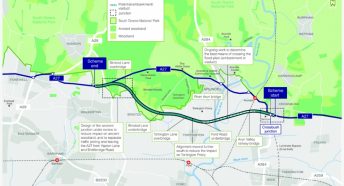Cut car use instead of building more roads
Using data collected by Highways England, Transport for Quality of Life has calculated that the government’s £27 billion Road Investment Strategy will add 20 million tonnes of carbon dioxide to UK emissions between now and 2032.
Research on the carbon impact of the national roads programme by Transport for Quality of Life shows that:
• Extra emissions as a result of more road capacity will negate 80% of the benefit arising from the switch to electric vehicles on the Strategic Road Network between now and 2032.
• Roughly equal proportions of the increase in emissions will be from road construction; higher speeds; and induced traffic.
• In order for us to meet our climate commitments, emissions from the Strategic Road Network need to be cut by 167 million tonnes of carbon dioxide over the next 12 years (2020 – 2032), over and above the savings that will occur because of the switch to electric cars. The added emissions due to RIS2 will make this challenging task still harder.
CPRE Sussex believes that the £27 billion road budget should be repurposed to make it easier for people to cut their car use. Coming out of the Covid-19 pandemic, investment in universal superfast broadband and thousands of remote working hubs would enable people to continue to work at or close to home, avoiding the long commute. Over the longer term, better rail, coach and bus services and better cycle links to stations would make it easier to make essential trips by public transport instead of driving on motorways and trunk roads.
The government is currently developing a transport decarbonisation plan, to be published later this year. Its new evidence will hopefully help make the case for cancellation of the roads programme as part of that decarbonisation plan.
Read:




